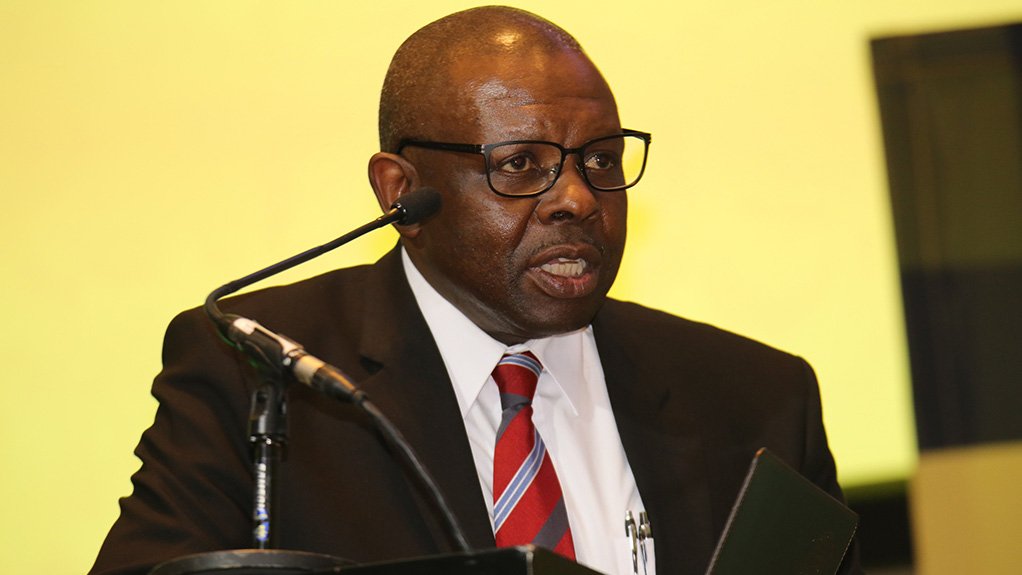Freedom Under Law (FUL) noted on Wednesday that Umkhonto weSizwe Party’s (MKP's) caucus leader in Parliament Dr John Hlophe’s election to the Judicial Service Commission (JSC) is an early test of all the parties forming the Government of National Unity (GNU) to take a position which would ultimately strengthen the credibility of the JSC and the rule of law.
On Tuesday the National Assembly elected Hlophe to the JSC, together with Molapi Lekganyane, Fasiha Hassan, Glynnis Breytenbach, Julius Malema and Athol Trollip, to represent Parliament.
Hlophe was removed from his office as a judge for gross misconduct after it was found that he tried to influence Constitutional Court justices to decide a politically sensitive case in favour of former President and present MK leader Jacob Zuma.
The finding of gross misconduct was made by the JSC and the courts, and Parliament impeached him.
FUL said it would be challenging Hlophe's designation as a member of the JSC on rationality and rule of law grounds.
FUL noted that all parties that did not object to the nomination of Hlophe are, by their silence, implicated in this “egregious” decision.
FUL said it was hard to reconcile the contradictory position of political parties that voted for Hlophe to be removed from judicial office but now voted in favour of his appointment to the JSC.
It argued that an individual who was found to have committed gross misconduct and was removed from judicial office, and who was now in a position to decide on the suitability of other candidates for judicial appointment was “wholly inappropriate, irrational, and susceptible” to legal challenge.
FUL highlighted that the designation of members of the National Assembly to the JSC was not equivalent to assigning members to portfolio committees within the assembly.
“The Constitution requires organs of State to assist and protect the courts to ensure their independence, impartiality, dignity, accessibility, and effectiveness. By designating an individual who has been found unfit to be a judge to the body responsible for the selection of judges, the National Assembly has fallen short of this duty,” it explained.
FW de Klerk Foundation constitutional programmes manager Daniela Ellerbeck said appointing someone found guilty of gross misconduct that led to them being removed as a judge, to the same institution that found them guilty and is responsible for disciplinary proceedings against judges, raises serious questions about whether this crucial institution will be compromised.
"Although Dr Hlophe swore to uphold and respect the law and Constitution as an MP, his impeachment for previous conduct stands in stark contrast to this oath of office. Impeachment is a serious issue," Ellerbeck said.
She highlighted that Hlophe was also a controversial MP, because he was not on the MKP's pre-election candidate list submitted to the Independent Electoral Commission.
Constitutional law experts assert that, because Hlophe was not on the list, his later inclusion and swearing-in as an MP was "illegal and unconstitutional," said Ellerbeck.
“Appointing someone shrouded in controversy to an institution where ethical conduct and integrity should be the plumb line will only weaken that institution and wreck the public’s confidence in the courts," she added.
Meanwhile, the African National Congress (ANC) said it holds no brief for Hlophe or any member of other political parties appointed to the JSC.
"The discontent about John Hlophe’s nomination is valid and the ANC position on the JSC discussion in the House was not to say there is no basis for concern," said ANC secretary-general Fikile Mbalula.
Mbalula explained that the real issue, which the Chief Whip expressed, was that the rules governing eligibility for membership of the House were moot on impeachment, saying once an impeached person was allowed to be a member of Parliament, it was difficult to prevent their political party from nominating them.
"What we need is clarification of the ‘fit and proper’ requirement in the current form of Section 47 of the Constitution," he said.
"For instance, section 47(c) categorically rules out insolvent persons from being ‘fit and proper’ for parliamentary membership. We therefore never have to worry about an ‘unrehabilitated insolvent’ being a member of the Appropriations Committee because none can even be in the House. The same does not exist in legislation for the determination of the ‘fit and proper’ standard for impeached. This is what the Chief Whip characterised as a lacuna in legislation. We have to solve it in section 47 as it was contemplated for financial prudence by barring unrehabilitated insolvents," he added.
EMAIL THIS ARTICLE SAVE THIS ARTICLE ARTICLE ENQUIRY
To subscribe email subscriptions@creamermedia.co.za or click here
To advertise email advertising@creamermedia.co.za or click here











